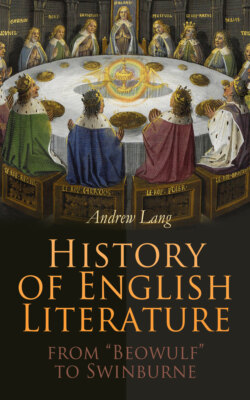Читать книгу History of English Literature from "Beowulf" to Swinburne - Andrew Lang, Robert Kirk - Страница 19
На сайте Литреса книга снята с продажи.
Elene.
ОглавлениеIt would, in that case, be in old age that Cynewulf wrote, in the "Elene," a poetic version of the legend of the discovery of the True Cross by Helena, mother of the Emperor Constantine. This poem, probably based on a Latin legend, has been very highly praised. But before we can take any pleasure in it, we must try to think ourselves back into the state of mind of England when the heathen poetry of war was still popular, and Christianity, with many mediaeval legends, was a fresh inspiration. Even when we have done that as well as we can, the "Elene" awakens only an historical kind of rapture. The natural man is much more at home with "Beowulf" and "Waldhere" than with "Elene".
The poet begins with an imaginary battle: allied Franks and Huns attack the Emperor Constantine. The motive of Cynewulf is to introduce plenty of fighting: probably he never fought himself, but like other men of peace, he loves to sing of war. His treatment of war is conventional; he introduces the usual cries of wolf, eagle, and raven. Constantine is encouraged by a dream of a bright being who urges him to trust in God; he also sees a vision of the Cross, gay with jewels (as in "The Dream of the Rood") and letters making the words "In this sign conquer". Then the battle is described, with more zest than originality, and the heathen are routed; many are converted. Helena next takes a large force, and sails to Palestine to look for the True Cross. The usual formulæ descriptive of a seafaring are employed.
Helena preaches to the Jews in the mediaeval way, and they, naturally, reply, "We know not, lady, why you are so angry with us". A crafty Jew, Judas, guesses that she has come to demand from them the True Cross, which he is reluctant to give up. Helena threatens to burn the Jews, and does put Judas in a pit, without meat or drink, for seven days. Broken in spirit at last, he says that he will do his best; he prays; a miraculous vapour arises from the spot where, twenty feet underground, three crosses are discovered. Another miracle points out which of the three is the Holy Rood; Judas is baptized, and the shining nails of the Cross are discovered. Then follow the verses in which the poet describes his own old age, and his beholding the true light that lighteneth all men.
